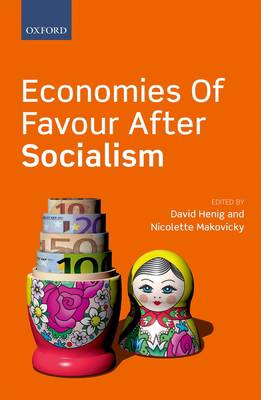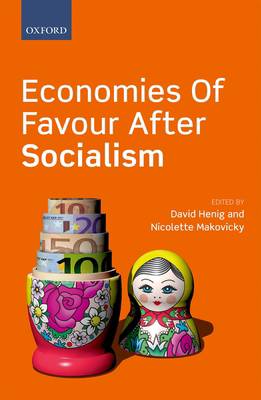
En raison d'une grêve chez bpost, votre commande pourrait être retardée. Vous avez besoin d’un livre rapidement ? Nos magasins vous accueillent à bras ouverts !
- Retrait gratuit dans votre magasin Club
- 7.000.000 titres dans notre catalogue
- Payer en toute sécurité
- Toujours un magasin près de chez vous
En raison de la grêve chez bpost, votre commande pourrait être retardée. Vous avez besoin d’un livre rapidement ? Nos magasins vous accueillent à bras ouverts !
- Retrait gratuit dans votre magasin Club
- 7.000.0000 titres dans notre catalogue
- Payer en toute sécurité
- Toujours un magasin près de chez vous
Description
Since the onset of the global economic crisis, activists, policy makers, and social scientists have been searching for alternative paradigms through which to re-imagine contemporary modes of thinking and writing about economic orders. These attempts have led to their re-engagement with fundamental anthropological categories of economic analysis, such as barter, debt, and the gift. Focusing on favours, and the paradoxes of action, meaning, and significance they engender, this volume advocates for their addition to this list of economic universals. It presents a critical re-interrogation of the conceptual relationships between gratuitous and instrumental behaviour, and raises novel questions about the intersection of economic actions with the ethical and expressive aspects of human life. Scholars of post-socialist politics and society have often used 'favour' as a by-word for corruption and clientelism. The contributors to this volume treat favours, and the doing of favours, as a distinct mode of acting, rather than as a form of 'masked' economic exchange or simply an expression of goodwill. Casting their comparative net from post-socialist Central, Eastern, and South Eastern Europe; to the former Soviet Union, Mongolia, and post-Maoist China, the contributors to this volume show how gratuitous behaviour shapes a plethora of different actions, practices, and judgements across religious and political life, imaginative practices, and local moral economies. They show that favours do not operate 'outside' or 'beyond' the economic sphere. Rather, they constitute a distinct mode of action which has economic consequences, without being fully explicable in terms of transactional cost-benefit analyses.
Spécifications
Parties prenantes
- Auteur(s) :
- Editeur:
Contenu
- Nombre de pages :
- 254
- Langue:
- Anglais
Caractéristiques
- EAN:
- 9780199687411
- Date de parution :
- 15-02-17
- Format:
- Livre relié
- Format numérique:
- Genaaid
- Dimensions :
- 155 mm x 236 mm
- Poids :
- 498 g

Les avis
Nous publions uniquement les avis qui respectent les conditions requises. Consultez nos conditions pour les avis.






